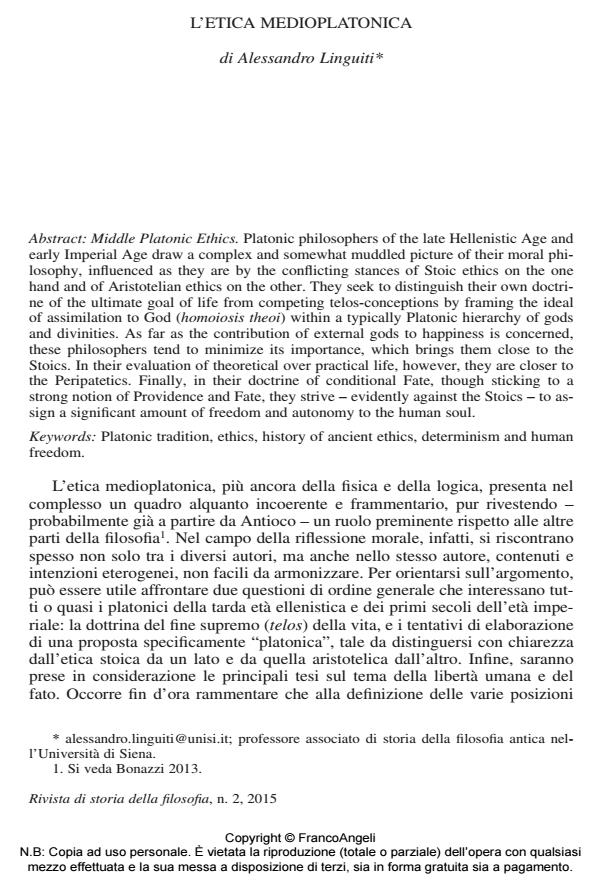L’etica medioplatonica
Titolo Rivista RIVISTA DI STORIA DELLA FILOSOFIA
Autori/Curatori Alessandro Linguiti
Anno di pubblicazione 2015 Fascicolo 2015/2
Lingua Italiano Numero pagine 21 P. 359-379 Dimensione file 115 KB
DOI 10.3280/SF2015-002005
Il DOI è il codice a barre della proprietà intellettuale: per saperne di più
clicca qui
Qui sotto puoi vedere in anteprima la prima pagina di questo articolo.
Se questo articolo ti interessa, lo puoi acquistare (e scaricare in formato pdf) seguendo le facili indicazioni per acquistare il download credit. Acquista Download Credits per scaricare questo Articolo in formato PDF

FrancoAngeli è membro della Publishers International Linking Association, Inc (PILA), associazione indipendente e non profit per facilitare (attraverso i servizi tecnologici implementati da CrossRef.org) l’accesso degli studiosi ai contenuti digitali nelle pubblicazioni professionali e scientifiche.
Platonic philosophers of the late Hellenistic Age and early Imperial Age draw a complex and somewhat muddled picture of their moral philosophy, influenced as they are by the conflicting stances of Stoic ethics on the one hand and of Aristotelian ethics on the other. They seek to distinguish their own doctrine of the ultimate goal of life from competing telos-conceptions by framing the ideal of assimilation to God (homoiosis theoi) within a typically Platonic hierarchy of gods and divinities. As far as the contribution of external gods to happiness is concerned, these philosophers tend to minimize its importance, which brings them close to the Stoics. In their evaluation of theoretical over practical life, however, they are closer to the Peripatetics. Finally, in their doctrine of conditional Fate, though sticking to a strong notion of Providence and Fate, they strive - evidently against the Stoics - to assign a significant amount of freedom and autonomy to the human soul.
Parole chiave:Platonic tradition, ethics, history of ancient ethics, determinism and human freedom.
- Dealing with Disagreement pp.185 (ISBN:978-2-503-60284-4)
Alessandro Linguiti, L’etica medioplatonica in "RIVISTA DI STORIA DELLA FILOSOFIA" 2/2015, pp 359-379, DOI: 10.3280/SF2015-002005